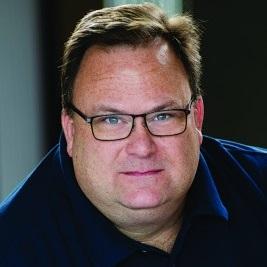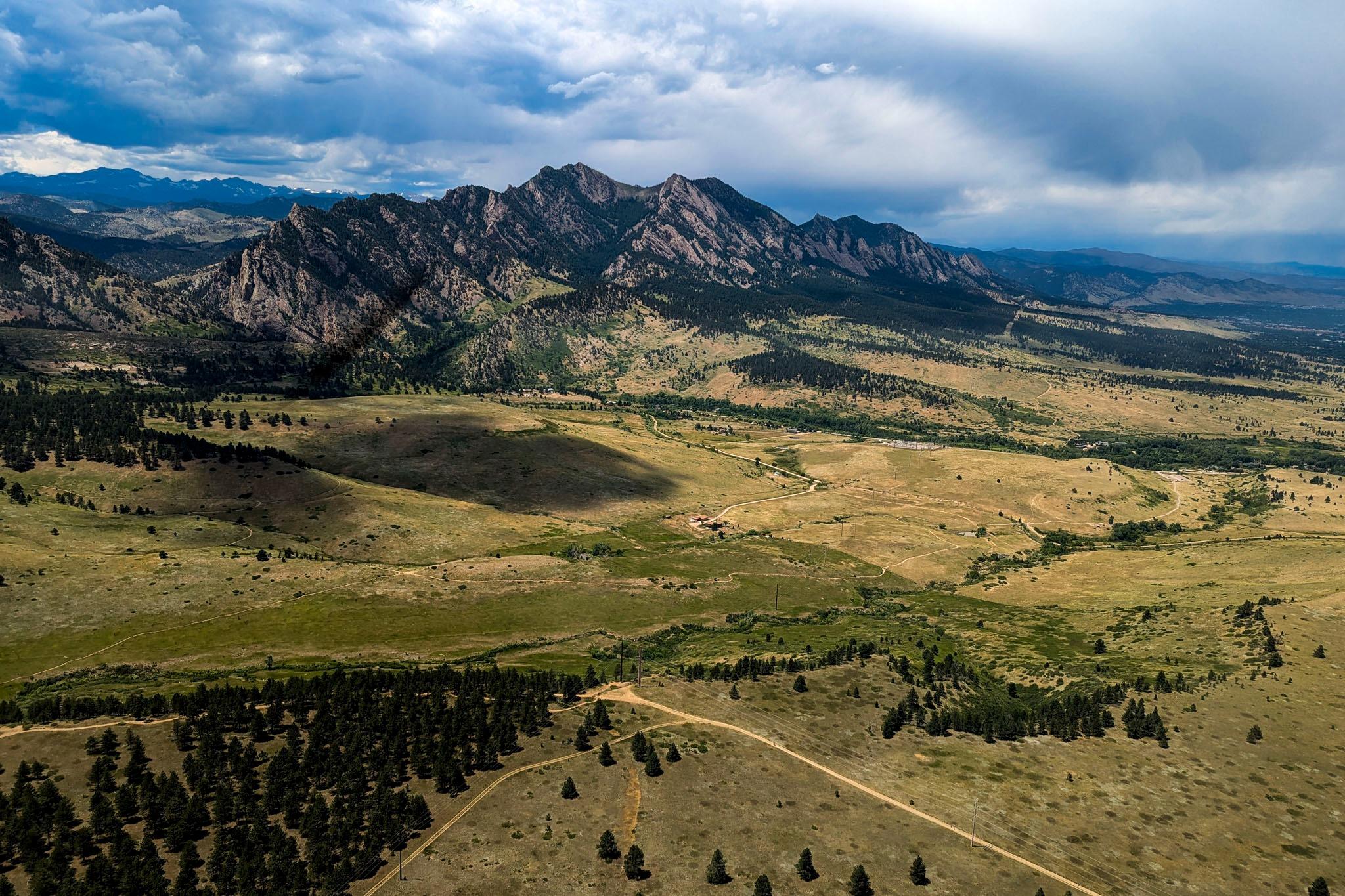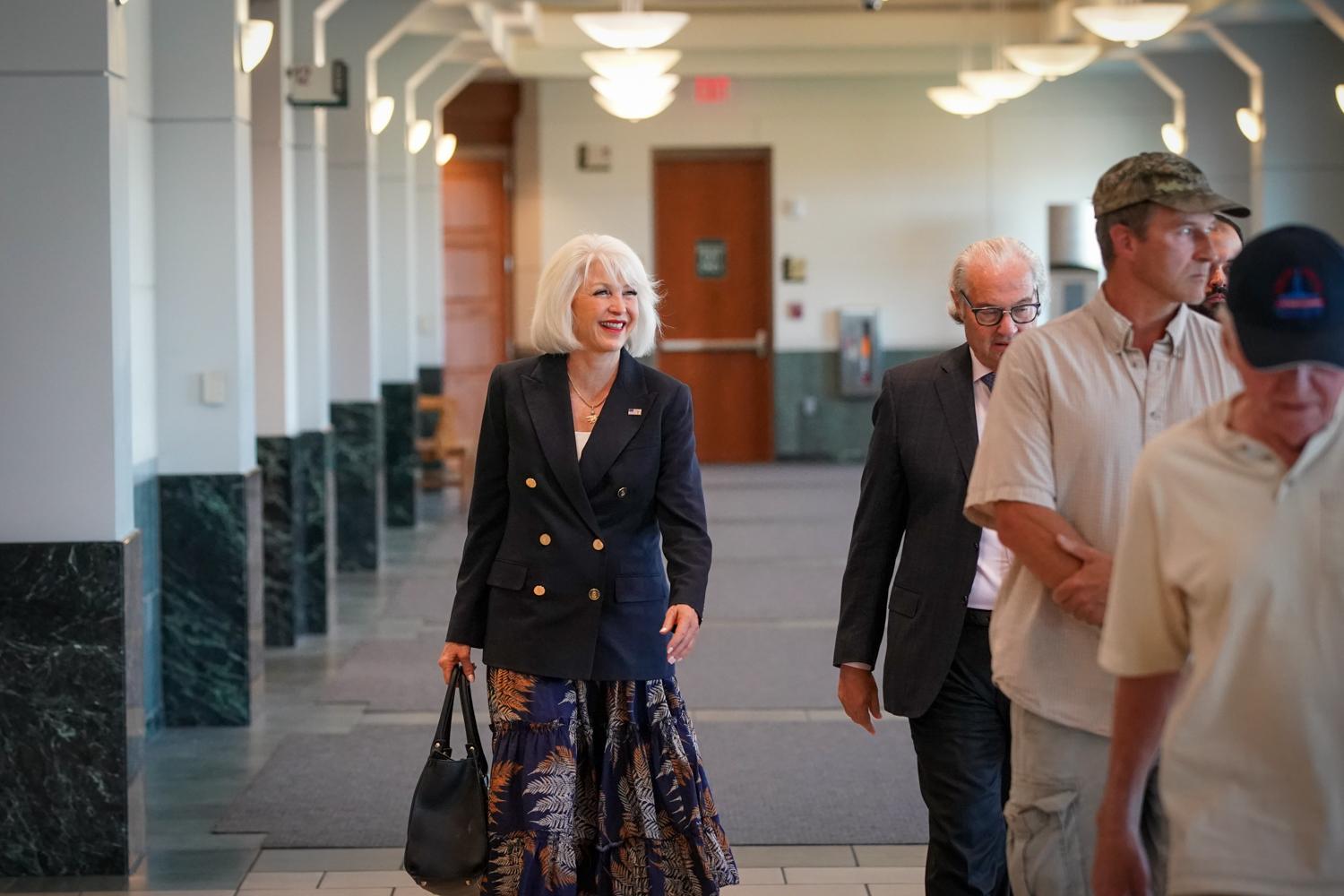
An appeal is in the works after a federal judge in Texas struck down the Affordable Care Act as unconstitutional last Friday.
Colorado may join other states in questioning that ruling, judging by the incoming state attorney general's tweets.
"The ACA decision needs to be reversed," Attorney-General Elect Phil Weiser tweeted Friday. "I will join other State AGs to defend the law."
The #ACA decision needs to be reversed. If it stands, 17 million will lose health care coverage; those under 26 no longer must be covered on their parents' plans; and those with pre-existing conditions won't be protected. I will join other State AGs to defend the law.
Weiser confirmed his commitment to fighting the federal ruling in an interview with Colorado Matters.
"It's not for a judge to then read intent into Congress and undermine a whole law," he said.
The Democratic attorney general also talked about his platform, including expunging old marijuana convictions and fighting the opioid epidemic, as well as his relationship with Governor-Elect Jared Polis. Weiser will be the first Colorado attorney general in about a decade to share the same political party as the governor.
Interview Highlights
On working with Jared Polis in a Colorado political era of Democratic dominance:
"A couple of points on that bear mentioning. First off, my core responsibility is to the people of Colorado, defending them. Whether it's healthcare, addressing the opioid crisis, addressing water, that core work, it doesn't depend who the governor is. I've got that work, it's an independent lane. Second, vis-a-vis Governor Polis, I'm his lawyer, and I will be a lawyer committed to the rule of law, committed to guiding our state on the right path and that commitment would be whether the governor was a Democrat or a Republican."
On why he has committed to expunging marijuana convictions:
"When people make a mistake and they are convicted of either consuming, possessing, or even dealing marijuana, they have both the penalty they paid at the time but then they have this other stigma. They have to answer this question, 'Have you ever committed a crime? Have you been convicted?' Job applications, for example. We have to ask ourselves, do we want people having that stigma, that burden, follow them for the rest of their lives. We have come to the conclusion that this is no longer worthy of being judged as a crime.
If you're in a college dorm and you sell marijuana to a friend, that counts as dealing marijuana. I believe you've got to look at the circumstances. This is what makes this issue a difficult one the legislature needs to work through, and I'm here committed to work with the legislature to help us figure this out. Because part of the problem is, there are all sorts of different scenarios."
On how his administration would combat the opioid epidemic:
"We have a lawsuit currently filed by Cynthia Coffman, current Attorney General. I will prosecute that lawsuit, work with it to successfully get a money damages result, maybe a settlement. Take the money from that settlement against these manufacturers, companies like Purdue Pharma. We get money from that, and then we have an opportunity. And it's a, I believe, once in a generation opportunity to start funding drug treatment so that we have an alternative to jails.
So what we need to do is get the money from this case against the pharmaceutical manufacturers and distributors, and others who are culpable, get that money, and then use it to support drug treatment. Start putting people in drug treatment instead of jail, and then change the cycle. Because we're now in this terrible cycle where people are addicted, they get arrested, they're in jail, they get back out, they get arrested again. We're not solving the problem."
Answers have been edited and condensed for clarity.
Full Transcript
Ryan Warner: This is Colorado Matters from CPR news. I'm Ryan Warner. An appeal is in the works after a federal judge struck down the Affordable Care Act as unconstitutional and Colorado may join other states questioning that ruling. Going into this weekend, Phil Weiser, Colorado's next Attorney General tweeted, "The ACA decision needs to be reversed. If it stands, 17 million will lose health care coverage, those under 26 no longer must be covered on their parents' plans and those with preexisting conditions won't be protected." The tweet goes on to say, "I will join other state AGs to defend the law." Attorney General-Elect, welcome to the program. Phil Weiser: It's great to be here, Ryan. RW: You also tweeted, "Protecting those with preexisting conditions is a BFD." A big deal. PW: Freaking deal. Big freaking deal. Joe Biden can use other words. RW: You also said that you will appeal the judge's decision, tweeting, "We," presumably Democratic Attorneys General, "will be the ones putting out this fire and helping us recover from a self-inflicted wound. The effort to undermine the ACA is wrong and dangerous." No words minced. Talk about what you are planning to do once you're sworn in in January. PW: I'm planning to defend health care. This ruling, wrong and dangerous are good words. Here's what the ruling said. That Congress, in changing the tax penalty to zero- RW: Just in the last tax overhaul. PW: Exactly right. Has taken away the authority for the individual mandate. That's problem number one, mistaken ruling. And then goes on to take insult on top of that injury and say there's no individual mandate, we should assume Congress doesn't want to have this law, the whole ACA, at all. That second ruling is so shocking in its disregard for the rule of law. There's a doctrine called severability, which is when do you strike down a whole law? Congress didn't overturn the ACA, a judge shouldn't do so. RW: Though the individual mandate was something of a keystone for the Affordable Care Act, but you're saying it's not so fundamental to the law that the law should collapse as a result of the removal of the individual mandate. PW: Correct. Had Congress wanted to take down the whole law, it could have done that. It thought about doing it and decided not to. It's not for a judge to then read intent into Congress and undermine a whole law. RW: In the analysis that I have read, it seems that this ruling goes even beyond what the Trump administration had argued itself. PW: Yes. The focus of the suit had been on the protection for people with preexisting conditions. That had been what this case was centrally about. I think the Trump administration was also acting in a way that was lawless and wrong-headed on that issue. This case went even further. RW: So what is the action that you'd take? Is it a suit that you'd join? Tell us how that manifests. PW: There's actually two parallel suits. One is this one in Texas. It will be going to the Fifth Circuit Court of Appeals. There's another action actually in Maryland, that other state AGs are involved in. We will decide what is the best way to protect the people of Colorado. Because I'll tell you, when I went around Colorado, the protection for people with pre-existing conditions, it is a big freaking deal. People care, people are nervous about their bankruptcy, about their kids. I want to protect Coloradans. RW: Of course, this could eventually land back at the U.S. Supreme Court, which in many ways saved Obamacare the first time around. But the complexion of that court is very different now. So that legal pathway doesn't guarantee the future of the Affordable Care Act by any means, does it? PW: I see John Roberts as the swing vote. He was last time, he will be this time. I don't think he will act differently. I believe John Roberts will say, the fact that Congress changed the tax penalty to zero dollars doesn't change anything. I believe this law will be upheld, and it will be on the shoulders of John Roberts. RW: Phil Weiser, when you talk about a federal judge's ruling in the way that you have, again, not mincing words, do you risk over-politicizing, one, the office of attorney general, and two, the judiciary? PW: This is a tricky question at a tricky time. RW: And let me just say, that if there were, say, a Republican on this program currently talking about, perhaps, what is perceived as a liberal judge having made a decision you support, you might be singing a different tune. PW: Well, I will get to be judged over time. My commitment is to the rule of law. I worked at the Supreme Court for two different justices, Justice Byron White, Justice Ginsberg. I'm committed to the rule of law and getting the law right. The ruling that this judge just did, let me again go back to the second ruling, because there were two and you noted that, about, "I'm going to strike down the whole law, because I'm striking down the individual mandate." That second ruling is so breathtaking and so far reaching, that anyone who cares about the rule of law, whether you're a Democrat or Republican, you should be taken aback by it. The first point, I believe, is also wrong, which is to say, I don't believe changing the tax penalty changes the analysis. That's a more debatable proposition. But my commitment is to protect the rule of the law and protect people of Colorado. People may put political lenses on things. Over time, people can make a judgment. I'm here to protect people of Colorado. RW: Speaking of politics and partisanship, I want to note that you're the first attorney general in Colorado in about a decade to share the political party that the governor does. How will you be a check on that office? I mean, is there a risk of being too aligned with one party's viewpoint? PW: A couple of points on that bear mentioning. First off, my core responsibility is to the people of Colorado, defending them. Whether it's healthcare, addressing the opioid crisis, addressing water, that core work, it doesn't depend who the governor is. I've got that work, it's an independent lane. Second, vis-a-vis Governor Polis, I'm his lawyer, and I will be a lawyer committed to the rule of law, committed to guiding our state on the right path and that commitment would be whether the governor was a Democrat or a Republican. RW: What conversations have you had with Governor-Elect Polis? What's been the nature of them? PW: They are mostly in the planning stages. I'm not yet his lawyer but I soon will be his lawyer, and I will be able to say those conversations are attorney-client privilege. RW: Okay. PW: For now, they are more about planning how we work together, and it's very important for a lawyer to have a good relationship with his or her client. What is unfortunate, and you've probably seen this, and even reported on it, Governor Hickenlooper and our current Attorney General, Cynthia Coffman, have not had a harmonious relationship. They ended up, actually, in court against one another. RW: They are from different parties. So let's talk about what is on your agenda. I won't delve further into attorney-client privilege. You're working with state lawmakers, I understand, on a bill in the next session to expunge marijuana convictions. This aligns with efforts, certainly by district attorneys in Denver and Boulder. Why is this important to you? PW: When people make a mistake and they are convicted of either consuming, possessing, or even dealing marijuana, they have both the penalty they paid at the time but then they have this other stigma. They have to answer this question, "Have you ever committed a crime? Have you been convicted?" RW: Job applications. PW: Job applications, for example. Or, do you even work in the marijuana industry? This is a prohibition. We have to ask ourselves, do we want people having that stigma, that burden, follow them for the rest of their lives. We have come to the conclusion that this is no longer worthy of being judged as a crime. RW: And yet, this drug remains illegal federally, and you lumped into that dealing marijuana. Isn't dealing different than possession? PW: Well, depends on the circumstances. If you're in a college dorm and you sell marijuana to a friend, that counts as dealing marijuana. I believe you've got to look at the circumstances. This is what makes this issue a difficult one the legislature needs to work through, and I'm here committed to work with the legislature to help us figure this out. Because part of the problem is, there are all sorts of different scenarios. One scenario is, you might have a plea bargain where you have several charges against you. One of them was a non-marijuana related issue, others were marijuana issues. You basically plea to the marijuana issue. If you go ahead and expunge that, in a way you're getting a bonus because you happen to have pled to that. So we need to figure out how to work through, the best we can overall a, call it regulatory system, so that we can process expungements as efficiently and effectively as possible. RW: How much of this is about the inequality and how this has been applied racially, for lack of a better term? But, the fact that there's a long history of different enforcements if you're white or not. PW: If that doesn't make you uncomfortable about this issue, it should, because your point is well taken, if you look at how these laws have been enforced. If it is the white kid in a college dorm versus a black kid outside the street, is the result differently sometimes? The data suggests it is. That, of course, informs my thinking, but the bottom line is we now don't think this is a crime. We shouldn't have people carrying the burden of it. We can do something about it. RW: You're listening Colorado Matters, I'm Ryan Warner, and Colorado's next Attorney General, Phil Weiser, is my guest. We're getting a sense of where he hopes to lead the office when he gets sworn in in January. One of your campaign promises was to take on the opioid epidemic. It's estimated, you say, one person in Colorado dies every 17 hours from an opioid overdose. We've discussed this before. I think on election night, you planned to join a lawsuit against pharmaceutical companies accused of misleading consumers about the addictive quality of opioids. But I want to highlight another promise of yours. Quoting here from your website, "To help those suffering from addiction get treatment, rather than putting them in jail or prison." I know that there are drug courts that certainly work on this, how else do you envision that working? PW: Let me tie those two points together, Ryan, because they actually fit hand-in-glove. We have a lawsuit currently filed by Cynthia Coffman, current Attorney General. I will prosecute that lawsuit, work with it to successfully get a money damages result, maybe a settlement. Take the money from that settlement- RW: Let me say, against the opioid manufacturers. PW: ... against these manufacturers, companies like Purdue Pharma. We get money from that, and then we have an opportunity. And it's a, I believe, once in a generation opportunity to start funding drug treatment so that we have an alternative to jails. Your own Allison Sherry has done great reporting in Alamosa County, for example. And I was on the trail saying, "I've heard from the sheriff. Ninety percent of the people in that jail are opioid users." And people say, "Oh, come on. That can't be true. What's your source for that?" And I said, "Well, the sheriff told me." Well, Allison Sherry did some reporting, you've documented it well. We need to look at that and say, "We've got to do better." Now, the problem in Alamosa County is there's not enough drug treatment. So what we need to do is get the money from this case against the pharmaceutical manufacturers and distributors, and others who are culpable, get that money, and then use it to support drug treatment. Start putting people in drug treatment instead of jail, and then change the cycle. Because we're now in this terrible cycle where people are addicted, they get arrested, they're in jail, they get back out, they get arrested again. We're not solving the problem. RW: I want to talk about environment protection. You've said that you might create a special unit at the Attorney General's office to support local governments in their negotiations and dealings with oil and gas companies. Is that about giving more local control to municipalities to decide what's right for them when it comes to, say, fracking? PW: It gives them the tools and the guidance they need. There's some localities, Longmont, Broomfield, that have been very aggressive in negotiating either with surface use agreements, or memorandums of understanding, to protect their land, their air, and in some cases their water. RW: Some of those communities have gone so far that the courts have smacked them back, in fact, with moratoria. PW: Earlier ones that has generated that sort of litigation, you can't do a moratorium, but you can do a lot of other things through these tools I mentioned. The goal I would have is to say to localities here is a playbook. Here are some of the best practices that other localities have done. A lot of localities are dealing with this, never have done them before and say, "What do I do?" I believe the attorney general, instead of waiting back and maybe suing them after the fact, can actually say upfront, "Here are some guideposts for you to think about. What can you do? What should you do?" RW: Is that in effort to avoid future litigation? In other words, if you have all of the localities on the same page, frankly, with the oil and gas industry, in other words, wouldn't the industry be at the table there if you want to avoid future litigation? PW: Yes. This is us in Colorado at our best. At our best, we're collaborative problem solvers. Think about how we did the methane rule. We brought the industry to the table. We said, "We're concerned about methane; it's harmful to human air and to climate change. We got to do something about it." We came up with a rule to address methane emissions. We can come up with rules to protect people in the face of oil and gas development. RW: Okay, we have about a minute left. When you take office, another area that you plan to focus on is consumer protection, in particular preventing financial fraud and scams. What do you believe previous attorneys general have been missing in that regard? PW: A sense of urgency, a sense of responsiveness to people, and a commitment to going after people who've harmed others. My background is in consumer protection. I worked at the Justice Department under both presidents Clinton and Obama. I'll take that expertise, and I'll take the commitment to helping people to bring this office to the next level. RW: Who's getting duped? Who's most vulnerable right now? PW: Elderly are among the most vulnerable. Sometimes even veterans coming back from serving are vulnerable. Anyone who, students who have student debt. Anyone who has a situation where they're desperate can be preyed on. I want to stand up for them. RW: Phil Weiser, thank you for being with us. PW: My pleasure. RW: He's Colorado's next Attorney General to be sworn in January 8th. Coming up the Greeley Grizwalds. This is Colorado Matters from CPR News. |









